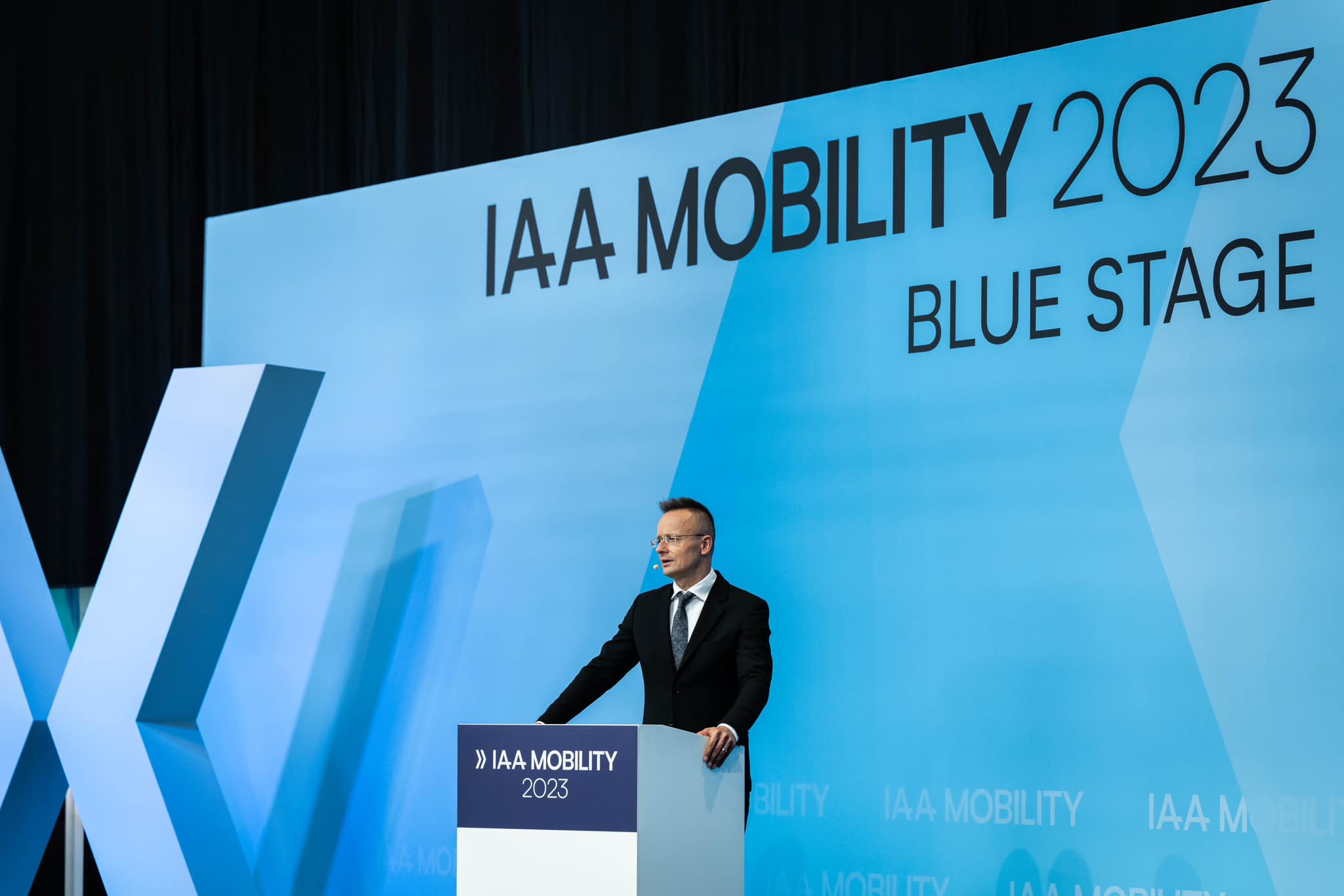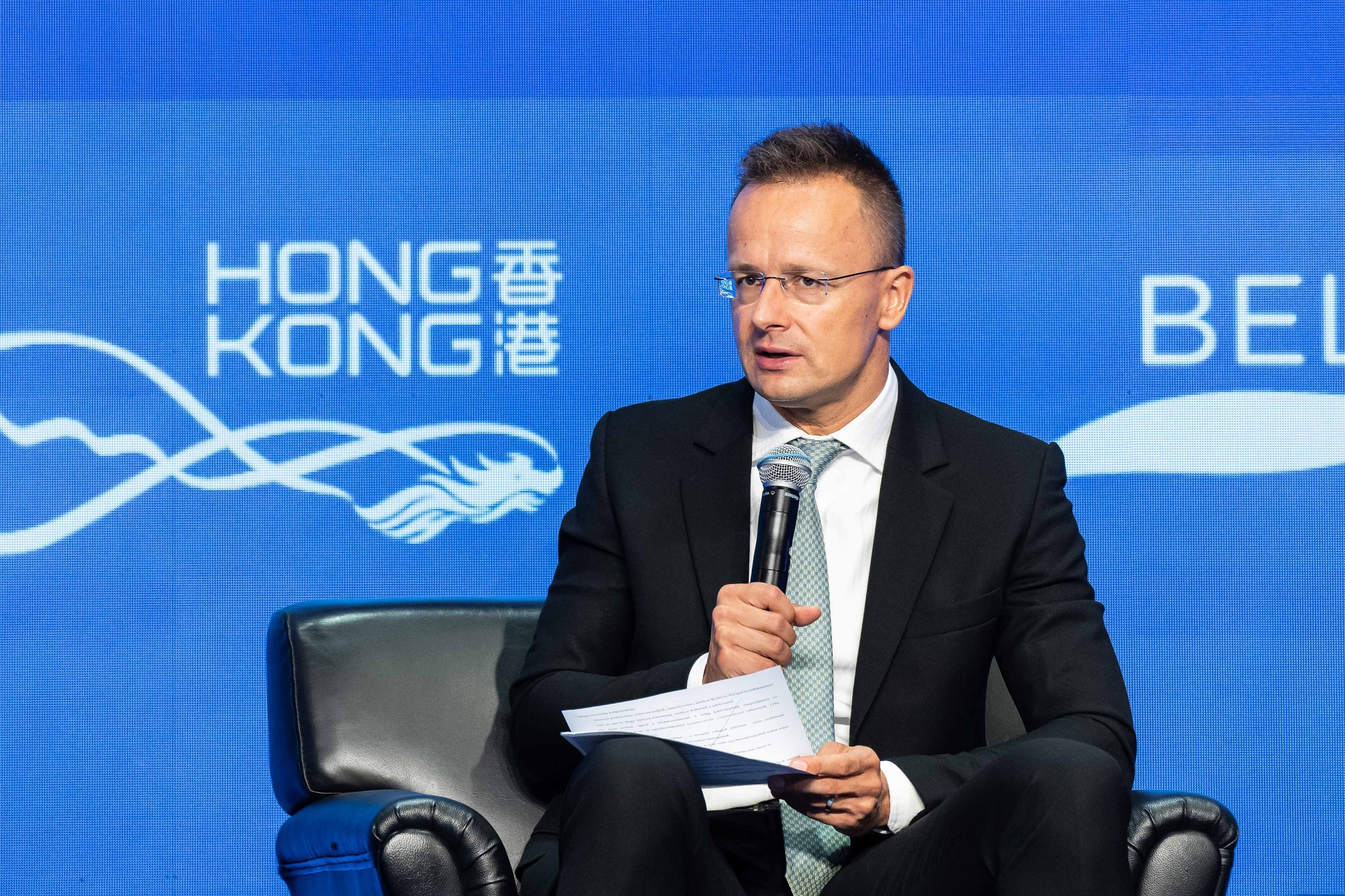
If there is one country in the world whose economy is determined by the automotive industry, it is clearly Hungary, Foreign Minister Péter Szijjártó said.Continue reading

Hungary would strongly support even closer economic cooperation between Europe and China, as the separation of the two economies would be a “complete blow” and would make it impossible to improve competitiveness, Minister of Foreign Affairs and Trade Péter Szijjártó stressed in Hong Kong on Wednesday.
Speaking at a panel discussion at the annual meeting of China’s One Belt, One Road initiative, the minister said that the European Union is in bad shape, facing the most serious economic and security challenges in decades. He pointed out that the EU has responded in a misguided and failed way to the war in Ukraine, trying to isolate the armed conflict but globalizing it in terms of negative spill-over effects.
In this context, he described it as illogical that Europe allowed itself to be “provoked” into a contest with the United States, the world’s number one military superpower, to see which side would supply Ukraine with more weapons.
This was a mistake, if only because the war is being fought in Europe, and it is the continent that is paying the price in terms of declining competitiveness, deaths, and decaying infrastructure.
Péter Szijjártó emphasized that
the EU’s competitiveness is deteriorating day by day, as exemplified by the fact that last year, China overtook the EU in terms of gross domestic product (GDP).
He underlined that the European economic development model has so far been based on a combination of advanced Western technologies and easily available, relatively cheap energy resources from the East, but these ties are being severed one by one. Furthermore, there are also actors who are calling for the separation of the European and Chinese economies. The latter would be a “total knock-out” and would “kill” the European economy, with bilateral trade worth €875 billion a year, he stressed.
The minister pointed out that an important strategic goal of the government is to make Hungary a meeting point for Eastern and Western companies, thus guaranteeing long-term economic growth. This has been helped by a connectivity-based foreign policy, which has proved successful, as Hungary has become the number one destination for Chinese investment in Central Europe and the first country in the EU to join the Belt and Road Initiative.
He went on to explain that
European companies, along with Hungary, are fiercely opposed to the disengagement from the Chinese economy, arguing that without close East-West cooperation the continent would not regain its competitiveness.
Finally, Szijjártó touched on the electrification of the automotive industry, the backbone of the European economy, which he said needed an East-West division of labor, as batteries for European vehicles are almost all produced in China, South Korea, and Japan, creating strong dependency.
He noted that Hungary has become a success story in this field, with all three major German premium car brands having production capacity in Hungary, and five of the world’s top ten electric battery manufacturers are also present.
Thanks to these, Hungary is currently the world’s fourth largest battery producer and will soon move up to second place.
“Hungary believes in connectivity, in strong East-West cooperation, so strengthening the Belt and Road Initiative will always be the focus of our foreign policy strategy, because we benefit a lot from it,” the Foreign Minister concluded.
Via MTI, Featured photo via Facebook/Péter Szijjártó